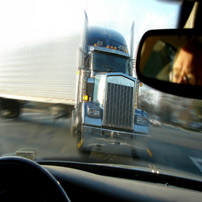Major Changes in the Trucking Industry
February 6, 2018 As technology continues to develop and evolve in the trucking industry, commercial truck drivers will need to prepare for these changes to keep up with the latest trends. From autonomous technology to electrified powertrains, these new advances in technology are going to have a major impact on every aspect of the trucking industry. Like many advances in automotive safety, these have the potential to make trucks safer, both for the truck drivers and motorists who are sharing the road. The following are a few examples of the latest trends that the trucking industry needs to prepare for in 2018:
As technology continues to develop and evolve in the trucking industry, commercial truck drivers will need to prepare for these changes to keep up with the latest trends. From autonomous technology to electrified powertrains, these new advances in technology are going to have a major impact on every aspect of the trucking industry. Like many advances in automotive safety, these have the potential to make trucks safer, both for the truck drivers and motorists who are sharing the road. The following are a few examples of the latest trends that the trucking industry needs to prepare for in 2018:
- Driverless Trucks: It is only a matter of time before fully autonomous vehicles are commonplace. Companies like Google and Tesla have already introduced driverless technology models. As a result, human operators will begin to take on more of a supervisory role rather than a hands-on role. The in-use hours of trucks are expected to increase, which means that product uptime will be that much more important. This may significantly reduce the number of truck accidents as well, since close to 95 percent of traffic accidents are due to human error.
- Electric Vehicles: In addition to well-known companies like Tesla, a growing number of truck companies are planning to introduce large trucks that can run for over 500 miles on a single charge. As a result, truck drivers will need to change their after-sales service strategies to ensure that the new vehicles are serviced regularly and repaired when necessary.
- Platooning: In the trucking industry, platooning is when two or more trucks follow each other at a close distance, using connectivity technology and automated driving support systems. Platooning is expected to become an important part of the self-driving truck industry in the years to come. By shrinking the distance between trucks, it increases road capacity, and decreases emissions by setting a fixed speed for the line of trucks. It also improves safety for truck drivers, who can rest while they are following the lead truck. It is a unique idea that can have a significant impact on the industry.
- Internet of Things (IoT): The IoT enables trucks to become more connected than ever before. From in-cabin WiFi to smart engines that can deliver updates about the vehicle’s maintenance systems, this technology can help avoid costly breakdowns by helping tuckers gain better insight into the vehicle’s performance. It is predicted that by 2020, the IoT will be worth close to $267 billion.
Baltimore Truck Accident Lawyers at LeViness, Tolzman & Hamilton Protect the Rights of Truck Accident Victims
Truck accidents are some of the most devastating traffic accidents that occur on roads and busy highways across the country. If you or someone you love has been involved in one of these catastrophic accidents, do not hesitate to contact the highly skilled and experienced Baltimore truck accident lawyers at LeViness, Tolzman & Hamilton. We will investigate the details of your accident and seek the maximum financial compensation you deserve for your injuries. To set up a free, confidential consultation, do not hesitate to call us at 800-547-4LAW (4529) or contact us online.
Our offices are located in Baltimore, Columbia, Glen Burnie, and Towson, allowing us to represent truck accident victims in Maryland, including those in Anne Arundel County, Baltimore County, Carroll County, Harford County, Howard County, Montgomery County, Maryland’s Western Counties, Prince George’s County, Queen Anne’s County, Southern Maryland, and the Eastern Shore, as well as the communities of Catonsville, Essex, Halethorpe, Middle River, Rosedale, Gwynn Oak, Brooklandville, Dundalk, Pikesville, Nottingham, Windsor Mill, Lutherville, Timonium, Sparrows Point, Ridgewood, and Elkridge.






